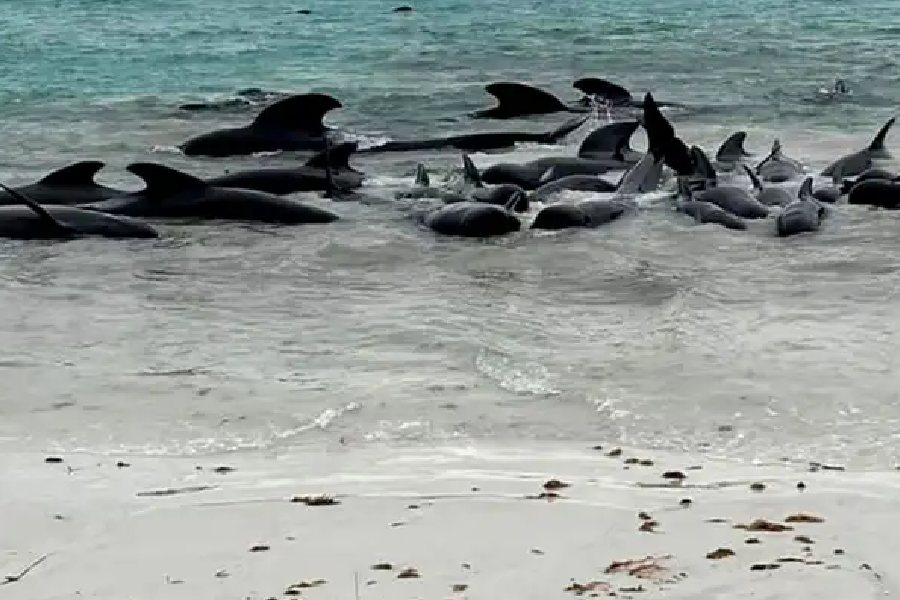Nearly 100 pilot whales stranded themselves on a beach in Western Australia on Tuesday, with Australian officials announcing 51 had already died on Wednesday.
The highly social long-finned mammals often maintain close relationships with their pods.
The whales were spotted swimming near Cheynes beach east of Albany early on Tuesday. By the afternoon, beached whales covered a stretch of the shoreline, despite earlier efforts to guide them back to sea.
What do we know about the rescue efforts?
Western Australia's state Department of Biodiversity, Conservation and Attractions set up an overnight camp to monitor the whales, in an attempt to save their lives.
"We still have 46 whales still alive, and that will be our focus today — to get them back into the water and encourage them to head off into deeper water," Peter Hartley, a manager from the department, told the Australian Broadcasting Corporation.
"We are optimistic that we will save as many as we can."
The rescue team includes veterinarians and marine fauna experts from Perth Zoo. Many have also volunteered to help, but officials said they were "overwhelmed" with the number of volunteers, urging the public instead to stay away from the beach.
Why do whales strand themselves?
The phenomenon of whales stranding themselves near Australia and New Zealand is not uncommon. Last October, some 500 pilot whales beached on New Zealand's remote Chatham Islands.
It has also been reported elsewhere recently. Last week, 55 pilot whales washed up on the Isle of Lewis in the Outer Hebrides, a remote Scottish island.
Some wildlife experts suggest the behavior could indicate stress or illness within the pods. Others think the whales go off track after feeding too close to shore.
It is also thought the mammals may follow pod-mates who stray into danger.










